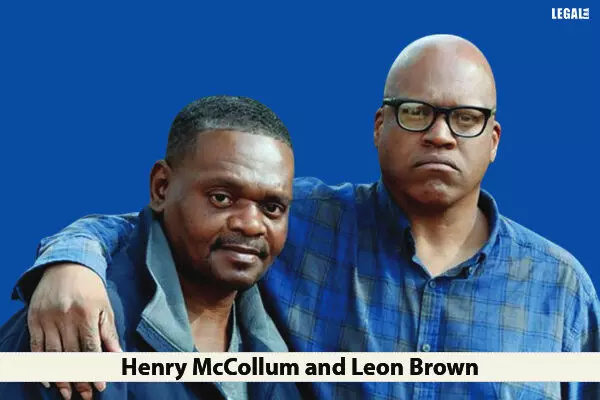- Home
- News
- Articles+
- Aerospace
- Artificial Intelligence
- Agriculture
- Alternate Dispute Resolution
- Arbitration & Mediation
- Banking and Finance
- Bankruptcy
- Book Review
- Bribery & Corruption
- Commercial Litigation
- Competition Law
- Conference Reports
- Consumer Products
- Contract
- Corporate Governance
- Corporate Law
- Covid-19
- Cryptocurrency
- Cybersecurity
- Data Protection
- Defence
- Digital Economy
- E-commerce
- Employment Law
- Energy and Natural Resources
- Entertainment and Sports Law
- Environmental Law
- Environmental, Social, and Governance
- Foreign Direct Investment
- Food and Beverage
- Gaming
- Health Care
- IBC Diaries
- In Focus
- Inclusion & Diversity
- Insurance Law
- Intellectual Property
- International Law
- IP & Tech Era
- Know the Law
- Labour Laws
- Law & Policy and Regulation
- Litigation
- Litigation Funding
- Manufacturing
- Mergers & Acquisitions
- NFTs
- Privacy
- Private Equity
- Project Finance
- Real Estate
- Risk and Compliance
- Student Corner
- Take On Board
- Tax
- Technology Media and Telecom
- Tributes
- Viewpoint
- Zoom In
- Law Firms
- In-House
- Rankings
- E-Magazine
- Legal Era TV
- Events
- Middle East
- Africa
- News
- Articles
- Aerospace
- Artificial Intelligence
- Agriculture
- Alternate Dispute Resolution
- Arbitration & Mediation
- Banking and Finance
- Bankruptcy
- Book Review
- Bribery & Corruption
- Commercial Litigation
- Competition Law
- Conference Reports
- Consumer Products
- Contract
- Corporate Governance
- Corporate Law
- Covid-19
- Cryptocurrency
- Cybersecurity
- Data Protection
- Defence
- Digital Economy
- E-commerce
- Employment Law
- Energy and Natural Resources
- Entertainment and Sports Law
- Environmental Law
- Environmental, Social, and Governance
- Foreign Direct Investment
- Food and Beverage
- Gaming
- Health Care
- IBC Diaries
- In Focus
- Inclusion & Diversity
- Insurance Law
- Intellectual Property
- International Law
- IP & Tech Era
- Know the Law
- Labour Laws
- Law & Policy and Regulation
- Litigation
- Litigation Funding
- Manufacturing
- Mergers & Acquisitions
- NFTs
- Privacy
- Private Equity
- Project Finance
- Real Estate
- Risk and Compliance
- Student Corner
- Take On Board
- Tax
- Technology Media and Telecom
- Tributes
- Viewpoint
- Zoom In
- Law Firms
- In-House
- Rankings
- E-Magazine
- Legal Era TV
- Events
- Middle East
- Africa
How the wrongful conviction verdict in the US history stood vindicated

How the wrongful conviction verdict in the US history stood vindicated
The two half-brothers were awarded $75 million in compensation
Henry McCollum and Leon Brown were teenagers when sentenced to death for the 1983 rape and murder of 11-year-old Sabrina Buie. This was a crime they did not commit. They were convicted based on false confessions obtained by the investigative agencies through coercion.
The black, intellectually disabled half-brothers spent 31 years in prison before the DNA evidence proved their innocence. They were exonerated in 2014 and granted pardons of innocence in 2015.
But what mattered most for McCollum and Brown was for this egregious injustice to be revealed to the world and believed. As Brown said, "They could not keep it hidden what they had done to us. It was going to come out, eventually."
We represented McCollum and Brown in a pro bono civil rights case Gilliam and Tarlton v. Robeson County.
We ultimately had to prove that the brothers deserved compensation for their over three decades of wrongful imprisonment.
One crucial strategy was preparing the brothers to testify. "It was like an inspiration to me, being able to let the jury know exactly what happened," Brown said.
Another crucial element of the trial was presenting the testimony of Sharon Stellato, the Associate Director of the North Carolina Innocence Commission. She had previously investigated the brothers' case and helped prove their innocence.
Demonstrating how close Buie's body was to the actual killer's backyard (36 feet, 9 inches) was also important. Des Hogan, our team lead, traveled to the crime scene in rural North Carolina to check it out.
At the trial, Des showed the jurors by stretching a tape to measure the same distance across the courtroom. Buie was found 14 steps from the yard of a known serial rapist and murderer, whom the police had never investigated.
When the judge read the verdict, the courtroom was stunned.
McCollum and Brown were awarded the largest wrongful conviction verdict in US history. The amount was $75 million. But for the brothers, it was not about the money. It was about the joy they felt because the jury heard their stories and believed them.



